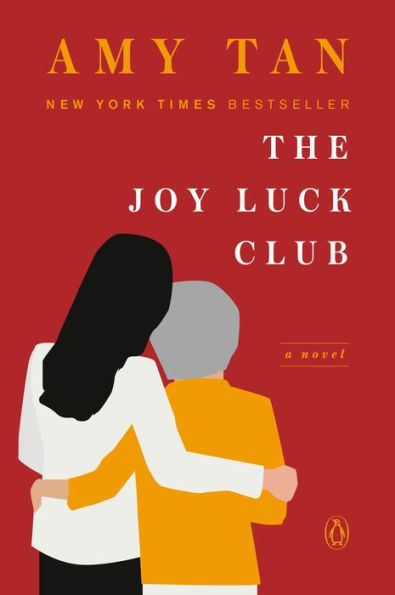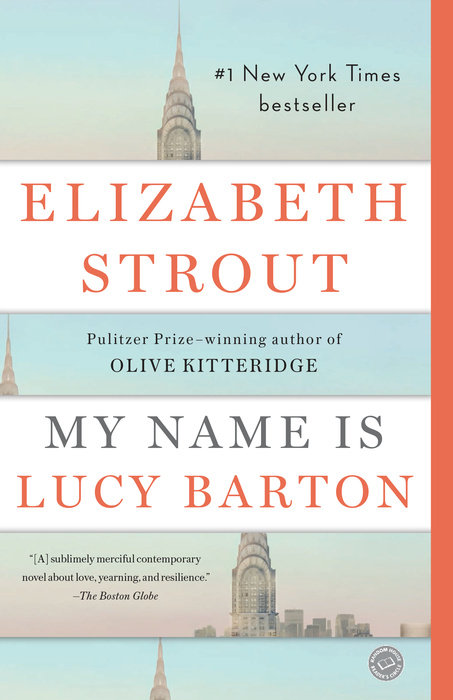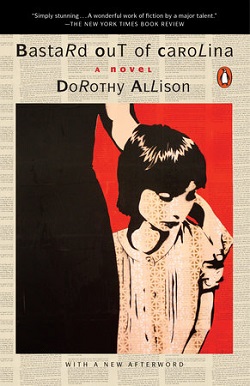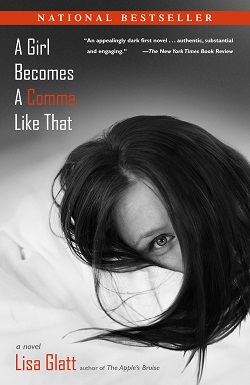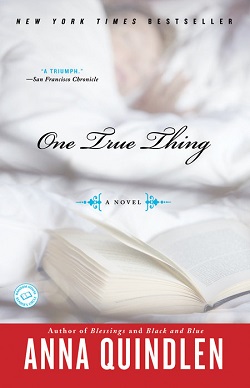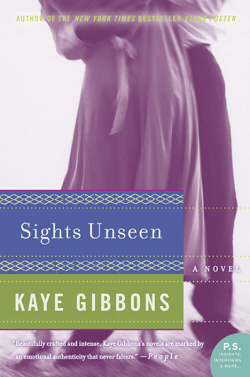Few relationships are more complicated than the relationship between mother and daughter; often the strongest bonds are forged with years of cumbersome baggage. These novels, by some of the most celebrated of contemporary writers, explore the complex and compelling bonds between mothers and daughters.
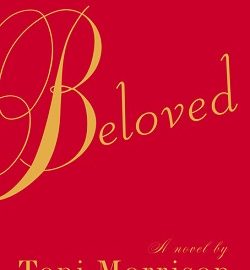
7 Unforgettable Books About Mothers and Daughters
Toni Morrison’s Pulitzer Prize–winning novel, BELOVED, has been rightly categorized as a ghost story and as a story about the physical and emotional brutality of slavery. But ultimately, I think BELOVED is a story about motherhood—the lengths a mother will go to in order to protect her daughter, and the dire consequences of that devotion.
Staring unflinchingly into the abyss of slavery, this spellbinding novel transforms history into a story as powerful as Exodus and as intimate as a lullaby. Filled with bitter poetry, Beloved is a towering achievement.
MENTIONED IN:
It’s hard to believe this novel is nearly 30 years old. Amy Tan’s debut is a book club staple, embraced by both mothers and daughters. The ambitious scope of the novel—narrated by three Chinese mothers and four American daughters—allows Tan to explore multiple stories, seamlessly moving from generation to generation, from China to America, from tradition to revolution.
In 1949 four Chinese women, recent immigrants to San Francisco, begin meeting to eat dim sum, play mahjong, and talk—and the Joy Luck Club is born. Over the years and the births of their daughters, they become united in their shared experiences of loss and hope, choosing to gather and raise their spirits rather than sink into tragedy.
MENTIONED IN:
Most of Elizabeth Strout’s novels concern themselves with parents and children, but none grapple quite so directly with the fraught relationship between mother and daughter as this one. Almost the entire present action of the book consists of Lucy Barton—a writer and mother to two young daughters—lying in a hospital bed, while her mother—visiting for the first time in years—sits at the end of the hospital bed, telling Lucy stories. Strout’s unflinching eye and staggering prose reveal the complex longings of these two vulnerable women.
As Lucy Barton recovers from an operation, her mother, to whom she hasn’t spoken for many years, comes to see her. Though gentle gossip seems to reconnect them, just below the surface Lucy recognizes a familiar tension and a longing to escape from her troubled family and become a writer.
What happens to a child when her mother can’t stop putting her own needs first? Bone’s conflict in this book, beyond constantly coming face-to-face with the cruelties of the adult world, is her attempt to find some goodness in her mother. In the adept hands of Dorothy Allison, Bone’s voice is the true power of this debut novel.
At the heart of the story is Bone, a bastard child who observes the world around her with a mercilessly keen perspective. When her stepfather Daddy Glen, "cold as death, mean as a snake," becomes increasingly more vicious toward her, Bone finds herself caught in a family triangle that tests the loyalty of her mother, Anney-and leads to a final, harrowing encounter from which there can be no turning back.
In Lisa Glatt’s debut novel, Rachel Spark returns home to care for her terminally ill mother. In the midst of a tailspin of poor sexual choices, Rachel leads a cast of women navigating complex relationships with each other, with men, and most significantly with their own bodies. Even as her body turns against her, Rachel’s mother remains a positive, comic, grounding force in the novel . . . sometimes to Rachel’s frustration. It’s that character, and her humor, that are at the center of this very funny, very painful rumination on death, sex, and perseverance.
In Lisa Glatt’s debut novel, Rachel Spark returns home to care for her terminally ill mother. In the midst of a tailspin of poor sexual choices, Rachel leads a cast of women navigating complex relationships with each other, with men, and most significantly with their own bodies. Even as her body turns against her, Rachel’s mother remains a positive, comic, grounding force in the novel . . . sometimes to Rachel’s frustration. It’s that character, and her humor, that are at the center of this very funny, very painful rumination on death, sex, and perseverance.
MENTIONED IN:
Another novel about a daughter returning home to care for her terminally ill mother, this New York Times bestseller focuses on Ellen—a successful, high-powered career woman who imagines she has little in common with her homemaker mother. Through their interactions, she discovers otherwise. The most memorable aspects of this novel are the nuanced explorations of the way familial roles in the last days of a parent’s life are defined by familial roles of the past.
Another novel about a daughter returning home to care for her terminally ill mother, this New York Times bestseller focuses on Ellen—a successful, high-powered career woman who imagines she has little in common with her homemaker mother. Through their interactions, she discovers otherwise. The most memorable aspects of this novel are the nuanced explorations of the way familial roles in the last days of a parent’s life are defined by familial roles of the past.
MENTIONED IN:
This 1995 novel focuses on twelve-year-old Hattie Barnes, whose mother, Maggie, suffers from mental illness so severe (and sometimes violent) that the entire family lives in constant fear and uncertainty. They are all victims of Maggie’s ravaging disease, perhaps no one more so than Hattie, who struggles to form a bond with a mother who may be unable to truly bond with anyone.
This 1995 novel focuses on twelve-year-old Hattie Barnes, whose mother, Maggie, suffers from mental illness so severe (and sometimes violent) that the entire family lives in constant fear and uncertainty. They are all victims of Maggie’s ravaging disease, perhaps no one more so than Hattie, who struggles to form a bond with a mother who may be unable to truly bond with anyone.
MENTIONED IN:









